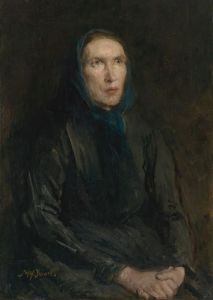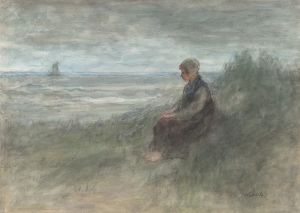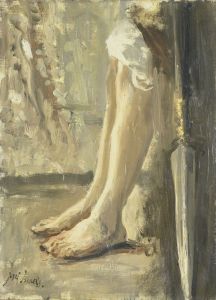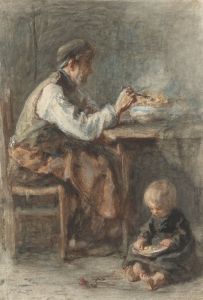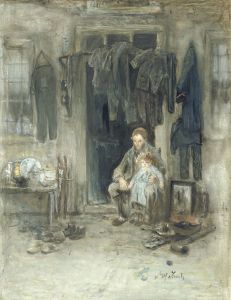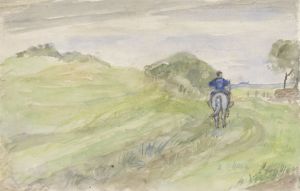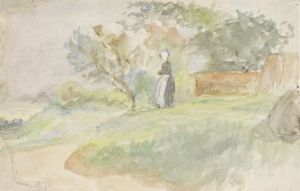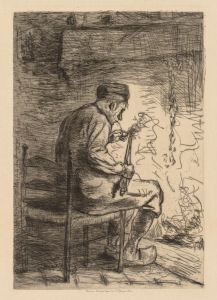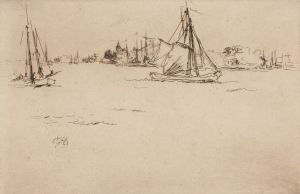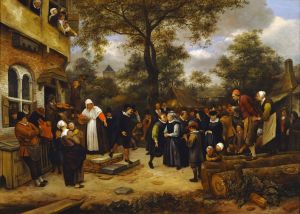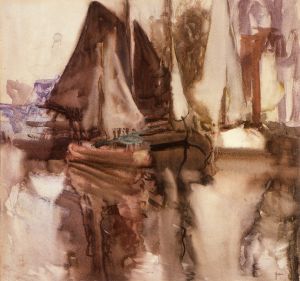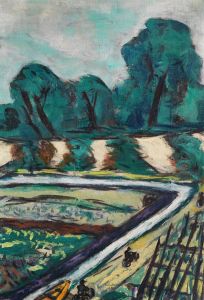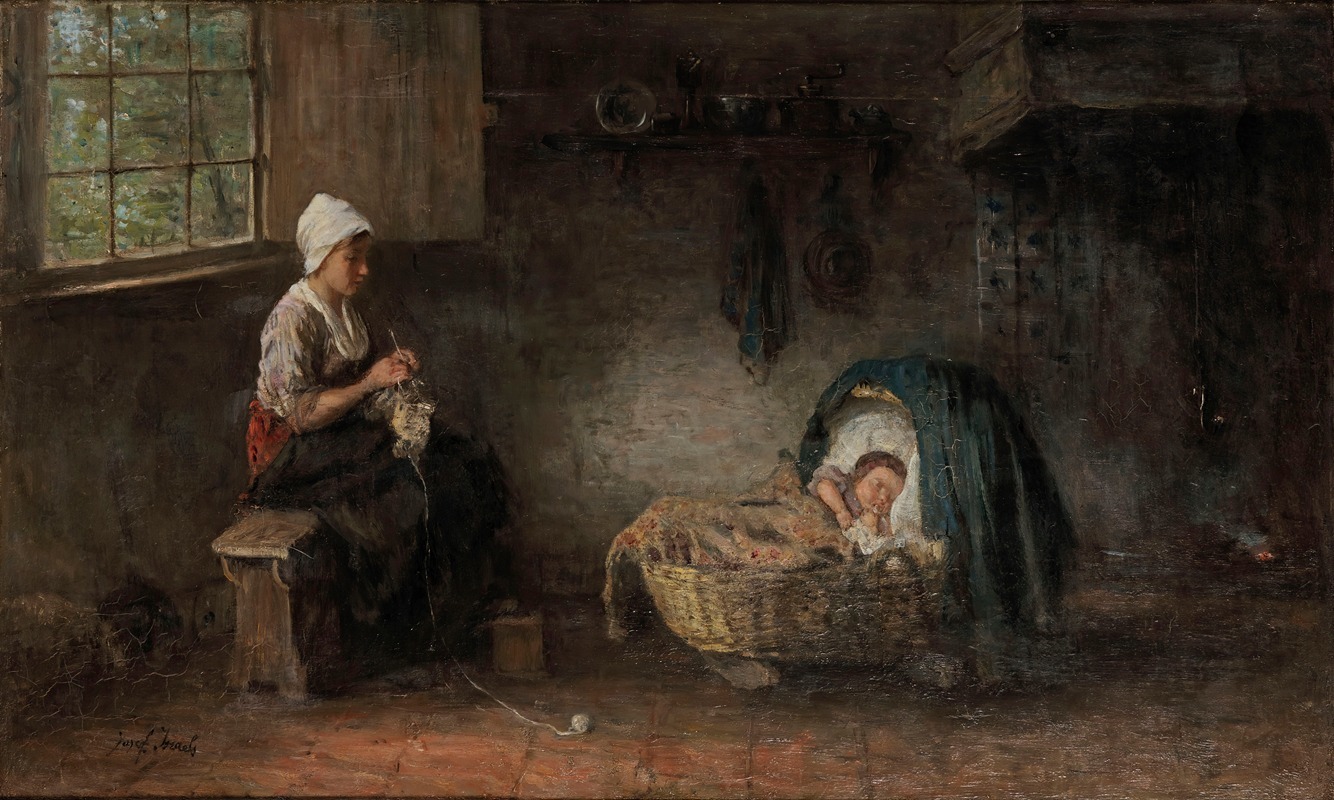
Mother’s treasure
A hand-painted replica of Jozef Israëls’s masterpiece Mother’s treasure, meticulously crafted by professional artists to capture the true essence of the original. Each piece is created with museum-quality canvas and rare mineral pigments, carefully painted by experienced artists with delicate brushstrokes and rich, layered colors to perfectly recreate the texture of the original artwork. Unlike machine-printed reproductions, this hand-painted version brings the painting to life, infused with the artist’s emotions and skill in every stroke. Whether for personal collection or home decoration, it instantly elevates the artistic atmosphere of any space.
Jozef Israëls was a prominent Dutch painter associated with the Hague School, a group of artists known for their realistic and often somber depictions of rural life in the Netherlands during the late 19th century. One of his notable works is "Mother's Treasure," a painting that exemplifies his style and thematic focus on the everyday lives of ordinary people.
"Mother's Treasure" is a poignant representation of maternal love and domestic life, themes that Israëls frequently explored in his work. The painting typically features a mother and her child, capturing a moment of intimacy and tenderness. Israëls was known for his ability to convey deep emotion through subtle expressions and gestures, and "Mother's Treasure" is no exception. The composition often includes soft, muted colors and a gentle play of light and shadow, creating a warm and inviting atmosphere that draws the viewer into the scene.
Israëls' technique in "Mother's Treasure" reflects his mastery of light and texture, which he used to enhance the emotional impact of his subjects. The careful attention to detail in the figures' clothing and surroundings adds a layer of realism that was characteristic of the Hague School. This realism, combined with the emotional depth of his subjects, made Israëls' work highly regarded during his lifetime and continues to resonate with audiences today.
The painting is also notable for its reflection of the social and cultural context of the time. In the 19th century, the role of the mother was idealized as the moral and emotional center of the family, a theme that Israëls captures with sensitivity and nuance. By focusing on the intimate bond between mother and child, "Mother's Treasure" offers a glimpse into the values and ideals of the period, while also transcending its historical context to speak to universal themes of love and family.
Jozef Israëls' work, including "Mother's Treasure," was influential in shaping the direction of Dutch art in the late 19th and early 20th centuries. His focus on everyday subjects and his ability to imbue them with emotional depth helped pave the way for later movements that sought to capture the human experience in all its complexity. Israëls' paintings were celebrated for their technical skill and emotional resonance, earning him a place among the most important artists of his time.
Today, "Mother's Treasure" is appreciated not only for its artistic merit but also for its ability to convey the timeless and universal aspects of human relationships. Israëls' work continues to be studied and admired for its contribution to the development of modern art and its enduring appeal to audiences around the world.





